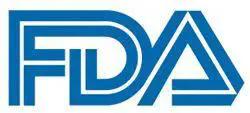FDA Approves Erdafitinib for FGFR3+ Locally Advanced or Metastatic Urothelial Carcinoma
The FDA has approved erdafitinib (Balversa) for select adult patients with locally advanced or metastatic urothelial carcinoma harboring FGFR3 alterations.
FDA

The FDA has approved erdafitinib (Balversa) for adult patients with locally advanced or metastatic urothelial carcinoma harboring susceptible FGFR3 alterations, as determined by an FDA-approved test, whose disease has progressed on or following at least 1 prior line of systemic therapy.
The agent is not recommended for those who are candidates to receive and have not yet received PD-1/PD-L1 therapy, according to the regulatory agency. The decision amends the previously granted accelerated approval for patients with metastatic urothelial carcinoma whose tumors harbor FGFR3 or FGFR2 alterations following previous platinum-based chemotherapy.2
The decision was supported by data from cohort 1 of the confirmatory phase 3 THOR study (NCT03390504; Study BLC3001) in which erdafitinib improved overall survival (OS), progression-free survival (PFS), and overall response rate (ORR) vs chemotherapy.
Specifically, the median OS was 12.1 months (95% CI, 10.3-16.4) with erdafitinib vs 7.8 months (95% CI, 6.5-11.1) with chemotherapy, translating to a 36% reduction in the risk of death (HR, 0.64; 95% CI, 0.47-0.88; P = .0050). The median PFS with erdafitinib was 5.6 months (95% CI, 4.4-5.7) vs 2.7 months (95% CI, 1.8-3.7) with chemotherapy, translating to a 42% reduction in the risk of disease progression or death (HR, 0.58; 95% CI, 0.44-0.78; P = .0002). Lastly, erdafinitinib elicited a confirmed ORR of 35.3% (95% CI, 27.3%-43.9%) vs 8.5% (95% CI, 4.3%-14.6%) with chemotherapy.
About THOR
Cohort 1 of the randomized, controlled, open-label, multicenter trial was comprised of patients with metastatic or unresectable urothelial carcinoma who had confirmed disease progression and were at least 18 years of age.3 Patients must have received 1 to 2 prior lines of systemic therapy, including an anti–PD-1/L1 therapy. They were also required to have an ECOG performance status ranging from 0 to 2 and the presence of an FGFR2/3 mutation or fusion.
Participants were randomized 1:1 to receive erdafitinib at a daily dose of 8 mg with pharmacodynamically guided up-titration to 9 mg, or physician’s choice of chemotherapy comprised of docetaxel or vinflunine given once every 3 weeks. Randomization was stratified by region (North America vs European Union vs rest of world), disease distribution (presence vs absence of visceral metastases), and performance status (0 or 1 vs 2).
The trial’s primary end point was OS and key secondary end points were PFS, ORR, and safety.
Safety Data
The most common toxicities that occurred in more than 20% of patients who received erdafitinib were increased phosphate, nail disorders, diarrhea, stomatitis, increased alkaline phosphatase, decreased hemoglobin, increased alanine aminotransferase, increased aspartate aminotransferase, decreased sodium, increased creatinine, dry mouth, decreased phosphate, palmar-plantar erythrodysesthesia syndrome, dysgeusia, fatigue, dry skin, constipation, decreased appetite, increased calcium, alopecia, dry eye, increased potassium, and decreased weight.1
Reference
FDA approves erdafitinib for locally advanced or metastatic urothelial carcinoma. FDA. January 19, 2024. Accessed January 19, 2024. https://www.fda.gov/drugs/resources-information-approved-drugs/fda-approves-erdafitinib-locally-advanced-or-metastatic-urothelial-carcinoma



